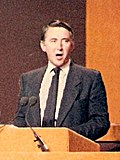 Global Information
Global Information1979 United Kingdom general election information
| |||||||||||||||||||||||||||||||||||||||||||||
All 635 seats in the House of Commons 318 seats needed for a majority | |||||||||||||||||||||||||||||||||||||||||||||
|---|---|---|---|---|---|---|---|---|---|---|---|---|---|---|---|---|---|---|---|---|---|---|---|---|---|---|---|---|---|---|---|---|---|---|---|---|---|---|---|---|---|---|---|---|---|
| Opinion polls | |||||||||||||||||||||||||||||||||||||||||||||
| Turnout | 76.0%, | ||||||||||||||||||||||||||||||||||||||||||||
| |||||||||||||||||||||||||||||||||||||||||||||
 Colours denote the winning party—as shown in § Results | |||||||||||||||||||||||||||||||||||||||||||||
 Composition of the House of Commons after the election | |||||||||||||||||||||||||||||||||||||||||||||
| |||||||||||||||||||||||||||||||||||||||||||||
The 1979 United Kingdom general election was held on Thursday 3 May 1979 to elect 635 members to the House of Commons.
The Conservative Party, led by Margaret Thatcher, ousted the incumbent Labour government of Prime Minister James Callaghan, gaining a parliamentary majority of 44 seats. The election was the first of four consecutive election victories for the Conservative Party, and Thatcher became the United Kingdom's and Europe's first elected female head of government, marking the beginning of 18 years in government for the Conservatives and 18 years in opposition for Labour. Unusually, the date chosen coincided with the 1979 local elections. The local government results provided some source of comfort to the Labour Party, who recovered some lost ground from local election reversals in previous years, despite losing the general election. The parish council elections were pushed back a few weeks.
The previous parliamentary term had begun in October 1974, when Harold Wilson led Labour to a majority of three seats, seven months after forming a minority government following a hung parliament and the failure of Edward Heath's Conservative government to form a coalition with the Liberals. Wilson had previously led the party in government from October 1964 to June 1970, and had served as party leader since February 1963.
However, after just two years back in Downing Street, he had resigned as prime minister, being succeeded by James Callaghan; and within a further year the government's narrow parliamentary majority had gone. Callaghan made agreements with the Liberals and later the Ulster Unionists, as well as the Scottish and Welsh nationalists, in order to remain in power. The Lib-Lab pact lasted until July 1978.
However, on 28 March 1979, following the defeat of the Scottish devolution referendum, Thatcher tabled a motion of no confidence in Callaghan's Labour government, which was passed by just one vote (311 to 310), triggering a general election five months before the end of the government's term.
The Labour campaign was hampered by recent memories of a series of industrial disputes and strikes during the winter of 1978–79, known as the Winter of Discontent, and the party focused its campaign on support for the National Health Service and full employment. After intense media speculation that a general election would be held before the end of 1978, Callaghan had announced early in the autumn of that year that a general election would not take place that year, having received private polling data which suggested a parliamentary majority was unlikely.[1]
The Conservative campaign employed the advertising agency Saatchi & Saatchi, and pledged to control inflation as well as curbing the power of the trade unions. The Conservatives also ran their campaign on the theme that "Labour Isn't Working" (unemployment reached a 40-year high of 1.5 million during 1978). The Liberal Party was damaged by allegations that Jeremy Thorpe, its former leader, had been involved in a homosexual affair and had conspired to murder his former lover. The Liberals were now being led by David Steel, meaning that all three major parties entered the election with a new leader.
The election saw a 5.2% swing from Labour to the Conservatives, the largest swing since the 1945 election, which Clement Attlee won for Labour. Margaret Thatcher became prime minister, and Callaghan was replaced as Labour leader by Michael Foot in 1980. The results of the election were broadcast live on the BBC, and presented by David Dimbleby and Robin Day, with Robert McKenzie on the "Swingometer", and further analysis provided by David Butler.[2] It was the first general election to feature Rick Wakeman's song "Arthur" during the BBC's coverage.
Because of the anaemic economic and social backdrop in this election, it presaged the 1980 United States presidential election 18 months later in which, in a situation with some parallels, incumbent US President Jimmy Carter was likewise defeated by Republican challenger Ronald Reagan, an advocate of similar socioeconomic policies to those of Margaret Thatcher's Britain.
Future Prime Minister John Major, who went on to succeed Thatcher in November 1990, entered Parliament at this election, retaining the Huntingdonshire seat in Cambridgeshire for the Conservatives. Prominent MPs Jeremy Thorpe, Shirley Williams and Barbara Castle were among the members of parliament who retired or lost their seats.
|
|
|
|
|
Cite error: There are <ref group=lower-alpha> tags or {{efn}} templates on this page, but the references will not show without a {{reflist|group=lower-alpha}} template or {{notelist}} template (see the help page).
- ^ Beckett 2009, p. 460.
- ^ BBC 1979 Election coverage on YouTube


